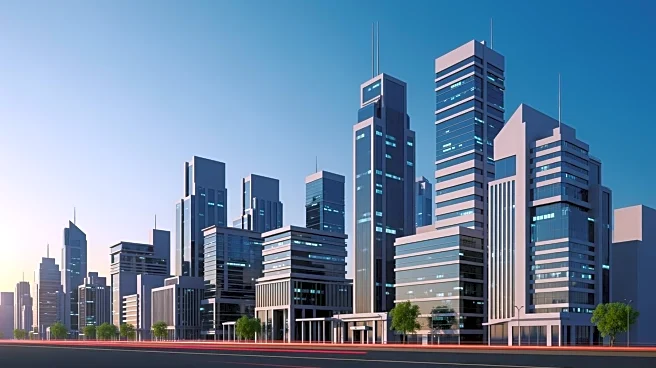What's Happening?
The Newport Beach City Council has reviewed a study aimed at revitalizing the Corona del Mar business corridor along Pacific Coast Highway. The study, presented by city staff, highlights the need for more restaurants and improved parking to transform
the area into a destination. Currently, the corridor is dominated by neighborhood services, with food and beverage establishments comprising only 20% of businesses. The study suggests streamlining land use for restaurants and prohibiting permits for car wash and drive-through businesses. It also recommends utilizing technology for parking solutions and promoting trolley use. Infrastructure improvements are proposed to enhance safety, following past incidents. The study's recommendations could be implemented by late 2026.
Why It's Important?
Revitalizing the Corona del Mar corridor is crucial for boosting local business and tourism. Increasing the number of dining establishments can attract more visitors, enhancing economic activity. Improved parking and infrastructure can address safety concerns and make the area more accessible. The proposed changes aim to prevent the corridor from becoming a defunct village, ensuring it remains a vibrant part of Newport Beach. This initiative could serve as a model for other communities facing similar challenges, highlighting the importance of strategic urban planning in maintaining economic vitality.
What's Next?
The Newport Beach City Council will consider the study's recommendations, with potential implementation starting in late 2026. Community feedback will be crucial in shaping the final plan, particularly regarding residential components. The council may explore partnerships with private parking lot owners to increase public parking availability. As the project progresses, stakeholders, including local businesses and residents, will likely engage in discussions to ensure the corridor's revitalization aligns with community needs and expectations.
Beyond the Headlines
The study's focus on increasing food and beverage establishments reflects broader trends in urban development, where dining and entertainment are key to attracting visitors. The emphasis on safety and infrastructure improvements highlights the need for resilient urban planning that can adapt to unforeseen events. The proposal to use technology for parking solutions underscores the growing role of digital tools in urban management. These elements suggest a shift towards more integrated and sustainable urban environments.















